The Concealed Cause of Low Self Esteem and How to Treat it
Although low self esteem manifests as words and behaviors, the real cause runs much deeper. This course will show you how to undo negative emotional conditioning and so free clients to be their authentic selves.
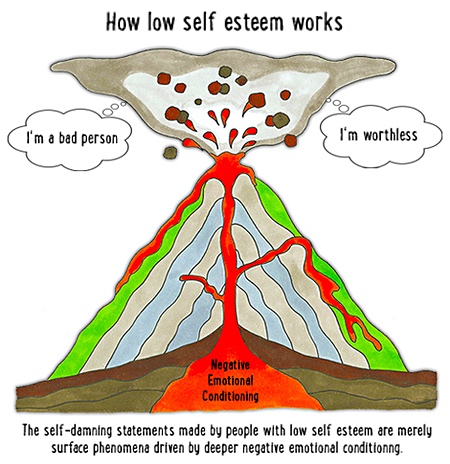
Milly made my heart hurt.
She was so, so young. So bright and so full of potential.
And she had self esteem so low a worm couldn't wriggle under it. (Which is pretty much how she saw herself)
I took a deep breath (carefully, so she didn't see). What was I going to do? Where was I going to start?
Milly, now in her mid twenties, had not had an idyllic childhood. Her father was remote and cold, and rarely around. And when he was at home he spent most of his time telling her what she was doing wrong, and the terrible things that would happen to her if she carried on that way.
Her mother was angry and dismissive most of the time, too bitter about her failing marriage to notice her failing daughter.
Milly didn't know how to get love, or where to get it from.
And as she matured, she started to get it in all the wrong places.
Now, after a string of failed and occasionally abusive relationships, she had come to me. She knew something was wrong, but she didn't know what. She had a pervading sense of being 'not good enough', but didn't know what to do about it.
She had been told over and over by well-meaning friends that she was a lovely person and deserved so much better, and it seemed to me, they were right.
But none of this had made any difference.
So as I sat there, listening, my mind raced. She needed help, desperately. I desperately wanted to help her.
But what to do?
So how should we help people with low self esteem?
Milly was a client many years ago, before I really understood low self esteem. I laboured for a long time, wondering how to get around the problem that words alone didn't seem to help.
I encouraged her when she doubted herself. I told her she was clever and attractive when she told me she was stupid and ugly. But she seemed to not hear me. Or worse. She seemed to not trust me. Was I lying to make her feel better? That was, I think, what she felt about my positivity.
Thanks to Milly, and others like her, over the years I developed an approach to low self esteem that let me reach even the most ardent of self haters. After years of refining it with clients, and many in-depth discussions with colleagues, I knew what to do, and almost as importantly, why the usual approaches didn't work.
But I wanted to get my approach out to the wider world. This was before the internet - it wasn't as easy as popping something on social media!
The self esteem seminar that came to my aid
Happily, I was rescued by a major opportunity where I was asked to collaborate with a counselling psychologist and other practitioners to create a day-long seminar on treating low self esteem.
I presented this course to more than 20,000 health professionals over the next two years and later co-authored a book on the topic.
And now finally, with the help of the Uncommon Knowledge team, I've created this comprehensive course called How to Lift Low Self Esteem in Your Clients.
Over the 20+ years since my national lecture series, I've been able to further polish my approach to treating low self esteem with hundreds of clients so that now, when I see the self-searing signs of low self esteem, the way forward is almost always clear.
The clients who have taught me range from those whose self esteem has been all but destroyed by years of childhood abuse, to those whose poor self image is more situation-specific, like the businessman who had retrained as a therapist but thought he couldn't tell stories, or the woman who had brought up 3 children but now felt she couldn't hold her own in a boardroom.
The single most important learning I made about low self esteem
And at the root of my approach to any of these clients is one understanding:
Low self esteem is not a cognitive issue. It is an emotional one.
And more specifically, low self esteem is driven by emotional conditioning.
Just like Pavlov's dogs, and especially when young, we are susceptible to being conditioned. A lot of this is useful (a red light = "stop"), but some is not (a mistake = "I am worthless"). Due to a child's restricted ability to put things into context, they are much, much more at risk of being negatively conditioned by painful emotional experiences. And conditioning lasts.
Which is why, of course, giving compliments to a person with low self esteem doesn't help. And, much worse, it makes them feel you don't understand.
Just like in the volcano picture above, the things that people with low self esteem say are just the steam, smoke and rocks thrown out of the top of the volcano. The real driving force lies beneath - the chamber of molten magma - the emotional conditioning that just doesn't fade.
Unless the problem is treated at source, then even if you succeed in stopping the rocks being thrown out for a while, it will only be temporary. Meanwhile, the pressure below builds.
A gentle, careful approach is essential
So my approach to low self esteem is to get rid of the emotional conditioning, and to do this in a respectful, careful and gentle way.
Not only is this more comfortable for the client, it has to be this way. Low self esteem makes people incredibly defensive, because their very self is sore and inflamed. Like a broken arm, their instincts tell them to keep people away from it at all costs.
So we need to be artful and gentle in our approach, but we also need to be purposeful. We need to know what we're trying to achieve, and how to achieve it.
And the wonderful thing I've found about this approach is that it makes things simple. Because beneath all the beautiful intricate differences that make up a human being we're all very similar.
And that's where the problem lies.
What's in the course How to Lift Low Self Esteem in Your Clients?

Instant access to Uncommon U - read, listen to, or download course materials, watch videos and gain access to the private commenting areas where you can discuss the course, clients and ideas with Mark and other course delegates.
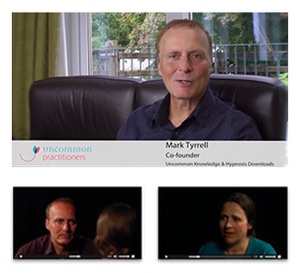
16 video presentations with 25 client video clips from live sessions illustrating self esteem techniques in action.
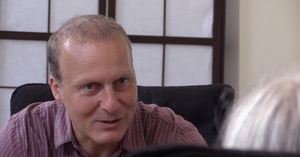
Exclusive full session video of a client being treated for low self esteem.
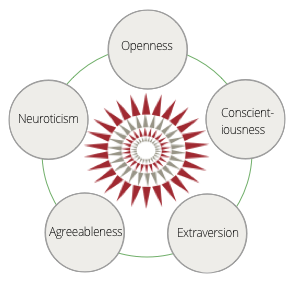
2 free Access Passes to a professional in-depth online Big 5 Assessment, plus treatment guide on how to use it with low self esteem clients.
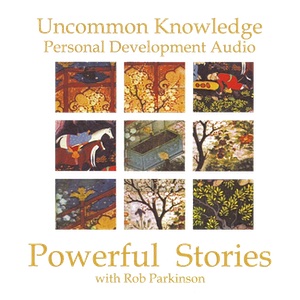
Bonus Storytelling Trainer therapeutic tales audio download(worth $40).

100 page manual from our self help program 'How to Build Solid Self Esteem' with exercises and worksheets, plus implementation guides for each step.

Mindfulness meditation mp3 (plus the script version) that you can use with your clients to help them detach from negative thoughts and become more emotionally resilient.
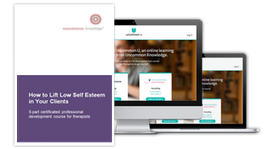
Course support materials giving you an approach to lift low self esteem of all types.
Comprehensive course notes - 178 pages in PDF format.
Monthly Live Question & Answer Session with Mark - join your fellow students from this and our other courses to ask Mark questions about the course and any therapy-related queries you have. You can ask your questions live on the call or submit them beforehand and if you can't make the live calls, they'll be available to download the following day (in mp3 format).
Your client questions answered - the collective Uncommon Knowledge brain will work on your single most pressing self esteem client problem for you, either in Uncommon U or in private by email.

Self test quizzes to embed your knowledge.
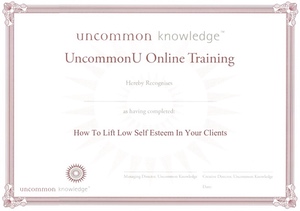
Certificate of completion - On successful completion of the course, you will receive a personalized certificate and a badge for your website.
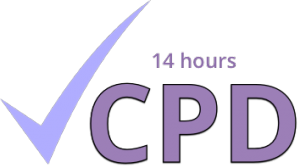
Confirmation of 14 hours/points for your Continuing Professional Development.
How does it work?
We have made it as easy as possible for you to take the course How to Lift Low Self Esteem in Your Clients. Many of our delegates are novices with computers yet perfectly comfortable within our online training area Uncommon U.
To get started in the course it's very simple. You simply click the Enroll Now button below, make payment, then log in to Uncommon U.
Once inside you will be able to say Hi! to Mark and your fellow delegates in the introduction thread and then progress with the course at your own pace.
At the end of each Session there is a short multiple choice test which you take to progress through the course, with a final test at the end if you'd like to earn a certificate of completion. We recommend you do, because it helps you 'know what you know' and so improves confidence.
Then, once a month, we'll let you know about Mark's Q&A call where you can ask questions, or just listen in, or download the next day if you're unable to attend live.
And the Uncommon Care team will be on hand in case you have any questions during the course.
Once you finish the course and the tests, you receive your certificate and you continue to have access to the course materials for as long as you need.
Testimonials from our previous delegates*

I better understand the mental dynamics of how low self-esteem comes about and that just bombarding the person with praise and compliments is not going to be effective. Being mindful of where they are over-generalizing in their perception of themselves. Also recognizing the goal isn't really high self-esteem, but having a healthy, balanced view of one's self. The course caused me to be more mindful of those areas where I generalize negativity about myself and others and I feel much more confident in recognizing and assisting clients who need to develop healthier self-esteem.
The course materials were concise and well put together. Highly recommended!
Before taking the course I was still operating on the outdated methodology of lifting clients out of low self-esteem. Now, I have a better template based on positive research to help more people. The video and audio content and choices around how to absorb the information provided were most satisfying for my already busy life!
I trained as a hypnotherapist but felt unqualified to act as "counsellor". This course and others I've studied with Mark have provided invaluable guidance on how to counsel clients too & get to the root of the issue - which many times clients don't seem to know.
The course is very easy to access, very well presented with a lot of supporting resources. I have only just started the course so can't comment on the end result, but so far I can see it will give me better insight into helping clients with low self esteem.
This is the second course I have undertaken with Uncommon Practitioners and I am just as enthralled and enjoying Lifting Self Esteem just as much. The information is up to date, challenges my own perspective and approaches to helping my clients as well as being presented with an engaging and clear format that is easy to follow and revise if required. If we could all estimate our value without undermining bias can you imagine the positive impact on humanity as everyone would be able to live to their full potential? This course is essential for anyone that wants to help people to be all they can be and at the same time learn valuable insights along the way. Highly recommended.
This course was a real eye opener for me. I had many "aha" moments as Mark busted some myths. The course totally changed the way I think about low self esteem. The videos are fantastic, there is a wealth of great information to help clients and the course is fully mobile via the app. Highly recommended.
In my work with veteran military clients, I very often discover self-esteem issues that are born out of unrealistic expectations of them by others or themselves. The content of the course helps me to challenge or reinforce certain ways of thinking based on whether they are healthy or not. Many of my clients carry unhealthy self-references that contribute to deep feelings of shame and inadequacy. This is often because they have been strongly encouraged to expect good results regardless of the obstacles. There is often considerable hindsight bias that makes what they believe faulty and harmful.
Money back guarantee

We aim to over-deliver on our promises in order to provide you with an enjoyable and enriching training experience that will get you not only returning for more training, but recommending us to your friends and colleagues!
Part of that goal is our promise that you will find treating your next three clients with low self esteem to be a much more effective and enjoyable experience - for both you and them! If this turns out not to be the case, simply let us know and we will give you a full refund.
Frequently Asked Questions
Is this an in-person course?
In short, no. We trained people face-to-face for a decade while we ran our diploma course at Brighton University, in the south of England. When we moved our training online in 2008 in order to reach a worldwide audience, we were a little sceptical.
We assumed people wouldn't learn so well online; that live training had to be more effective than online training. But, as it turns out, we were wrong. In traditional face-to-face training, you see the demonstrations only once and hear the presentations only once. And, inevitably, when you go away and try to implement your new skills, questions come up.
But, of course, the training has finished, so you can't ask them. With an online course, you can try things out, then come back to the group to ask any questions you have, review the relevant part of the training, and then go back and give it another shot. We've found people who learn online learn more deeply and thoroughly, which is why we now train people internationally. The process of learning, trying something out, then coming back with questions and reflections seems to work incredibly well when learning new therapy skills.
I'm not good with computers, is this online course for me?
We have made it as easy as possible for you to take the course. Many of our delegates are novices with computers yet perfectly comfortable within our online training area Uncommon U.
Once you've enrolled on the course, you will be able to say Hi! to Mark and your fellow delegates in the introduction thread and then progress with the course at your own pace.
At the end of each session, there is a short multiple choice test which you take to progress through the course, with a final test at the end if you'd like to earn a completion certificate. We recommend you do, because it helps you 'know what you know' and so improves confidence.
Then, once a month, we'll let you know about Mark's Q&A call where you can ask questions, just listen in, or download the next day if you're unable to attend live.
And the Uncommon Care team will be on hand in case you have any questions.
What is Uncommon U?
Uncommon U is our user-friendly online learning platform designed to make learning with us seamless and enjoyable. From the moment you receive your login details, you'll have instant access to a variety of resources, including video and audio lessons, articles and other study materials, along with private discussion areas. These features allow you to work through our courses at your own pace, engage with fellow course delegates, and ask questions along the way.
Whether you're tech-savvy or new to online learning, Uncommon U (accessible through your normal browser or through the free Uncommon U app that you can use on your smartphone or tablet) provides a supportive, accessible space where you can deepen your knowledge, share ideas, and grow in a collaborative community. And you'll continue to have access to the platform and all its materials even after you've finished the course, ensuring you can revisit and refine your skills anytime.
When does the course start?
The course starts as soon as you enroll and get your login details! You take the course at your own pace (there is no fixed end date).
Is there a time limit to finish the course?
No. Your learning is self-directed but we do encourage you to continue with the course until you've completed it. We do love it when practitioners get their certificates!
Will my access to the course be cut off after a certain amount of time?
No, you'll have access to the course for as long as you need, so even after completion, you can come back and review the content again and again should you need to.
Is there a certificate provided upon completion of the course?
Yes. When you pass the final multiple choice test for the course, we'll email you a certificate of completion.
Are there any testimonials from previous students I can read?
Yes, there are many testimonials from previous students on this course information page. These testimonials provide insights into the experiences and outcomes of past learners.
What if I have questions during the course?
You can participate in the monthly live Q&A session with Mark, ask Mark a question in the comments sections in the course, get in touch with our fantastic Uncommon Care support team, or post your questions in the Uncommon Practitioners Private Facebook Group for peer support.
What is the benefit of joining the Uncommon Practitioners Private Facebook Group?
By joining the Uncommon Practitioners Private Facebook Group, you can connect with other practitioners, share experiences, learn from others and offer help.
Will this course qualify me to practice?
In short, no. We no longer qualify anyone to practice because (as all our training is remote now) we don't get to actually see our students practice what we are teaching them. So our training is really for practitioners who want to improve their therapeutic skills or for interested lay people.
Who is this course intended for?
This course is designed for therapists, counsellors, psychologists, coaches and other practitioners who wish to grow their abilities to help clients with low self esteem. Past students have also included parents, teachers, nurses, and the generally interested!
Does this course have CPD/CEU?
On passing the final multiple choice test, we'll email you a certificate of completion along with confirmation of 14 CPD/CEU points earned.
Please note that because we have worldwide students and there are so many different organizations that they are members of, unfortunately it's not practical for us to apply to every organization to have our courses approved for CPD/CEU hours. So, the usual way practitioners do this is to contact the association or organization themselves to see if they will accept the course for CPD/CEU and if your organization needs more information, just let us know what they need and we'll be happy to help.
What materials are included in the course?
- 16 video presentations with 25 client video clips from live sessions illustrating self esteem techniques in action.
- Exclusive full client session video of a client being treated for low self esteem.
- 2 free Access Passes to a professional in-depth online Big 5 Assessment, plus treatment guide on how to use it with low self esteem clients.
- Bonus Storytelling Trainer therapeutic tales download.
- 100 page manual from our self help program 'How to Build Solid Self Esteem' with exercises and worksheets, plus implementation guides for each step.
- Audio of all video presentations for easy listening on-the-go
- Primal Human Needs assessment tool
- Mindfulness meditation mp3 (plus the script version) that you can use with your clients to help them detach from negative thoughts and become more emotionally resilient.
- Checklist of symptoms of low self esteem ("The Characteristics of Low Self Esteem")
- Comprehensive course notes - 178 pages in PDF book format.
- Monthly Live Question & Answer Session with Mark - join your fellow students from this and our other courses to ask Mark questions about the course and any therapy-related queries you have. You can ask your questions live on the call or submit them beforehand and if you can't make the live calls, they'll be available to download the following day (in mp3 format).
- Access to the Uncommon Practitioners Private Facebook Group where you can chat with like-minded practitioners, get support, discuss cases or just share your latest beautiful photo.
What will I learn in each session of the course?
Session 1 - Self esteem essentials - back to basics
- What low self esteem is and where the low self esteem industry went wrong
- How to recognize low self esteem
- Common causes of low self esteem
- The Big Five Personality Profiling.
Session 2 - How to dislodge a destructive ideology
- Understanding ideologies
- The importance of working around damaging beliefs
- How metaphor, analogy and storytelling can bypass resistance to change
- Demonstrations and examples of therapeutic stories.
Session 3 - How to help clients have healthy relationships
- Forming relationships
- The dangers of over agreeableness
- Low self esteem and intimate relationships
- Finding healthy relationships and overcoming insecurity.
Session 4 - How to help clients overcome past emotional conditioning - treating low self esteem at the level that drives it - the emotional level.
Session 5 - Low self esteem, the Primal Human Needs and spare capacity - helping your client create a life that naturally maintains healthy self esteem.
I've got more questions about this course, how do I contact you?
We'll do our very best to get back to you within 24 hours and we manage this over 95% of the time. When you submit your query, we'll send you an automatic response confirming that we've got it. If you don't see this email in your inbox, please check your junk or spam folder.
In the unlikely event that you do not hear back from us within 48 hours, you can assume something has gone wrong between you sending the email and us receiving it. In this case, please contact us again, making sure your contact email address is entered correctly.
Get 10% off the full course price & join anytime when you're a Growth Zone member - click here to learn more
This course will be open soon. Click here to register to be notified.

